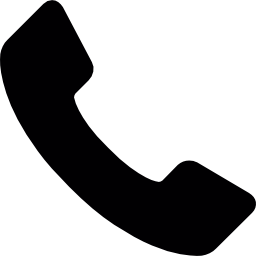Introduction
We will be covering conversation, including:
Not Coming on Too Strong
The appointment setter needs to be aware of the conversation flow, allowing for the client to speak as well. If they talk too much during the conversation, they may appear to be more interested in themselves rather than the client.
Maintaining a Positive Attitude
The appointment needs to maintain a positive attitude throughout the conversation with the client. The client is more likely to want to talk with someone with a positive attitude than someone with a negative attitude who complains a lot.
Preparing Some Topics Beforehand
The appointment setter needs to prepare various scripts and cues depending on the business that the appointment setter is talking to (such as “When will he/she be available today?” for a non-contact call (which are attempted calls that have resulted in results such as an answer machine, a busy signal or no answer at all)), so that they aren’t caught out during a call.
Breaking The Ice
The appointment setter needs to break the ice with the client in order for the client to warm to them, such as “Hello, my name is X, and I’m calling from Y. Is this Z?”
Be Succinct
Once the appointment setter has arrived at the sales pitch, they need to keep it 30 seconds or less, giving them only the most important information that they need to know. If the client is interested, they will ask for more information
Asking Questions
Once the pitch has been delivered, the appointment setter needs to ask the client questions such as “Can you see how our product/service is useful to your business?” or “Does my pitch make sense?”, so that they are brought into the pitch. The appointment setter can mention relevant details about the product/service to bring the client on board.
Follow-Up Questions
Follow-up questions include:
- May I ask you some questions about your business?
- Could you tell me about your business?
- You specialise in X. Why did you choose that area?
- What are your goals for the next [3/6/12] months?
- What does your manager want to achieve in the next year?
- How does your business evaluate new services or products before buying?
- Tell me about your average working day. How would what we offer change what you do day to day?
- What is currently stopping your business from achieving your goals?
- Did your budget previously stop you solving the issue?
- Why is this currently a priority?
- Why did you choose your current vendor?
- What is the issue that you’re trying to solve?
- What are the business’s priorities this quarter?
- What are your main pain points?
- What business events are you going to this year?
- What are your largest growth opportunities?
- When is a good date to follow up on this call?
Asking for a Commitment
The appointment setter needs to ask for a timeline for when a decision will be made, and when they can make a follow-up phone call.
Conclusion
We have covered conversations, including not coming on too strong, maintaining a positive attitude, preparing some topics beforehand, breaking the ice, be succinct, asking questions, follow-up questions and asking for a commitment.

